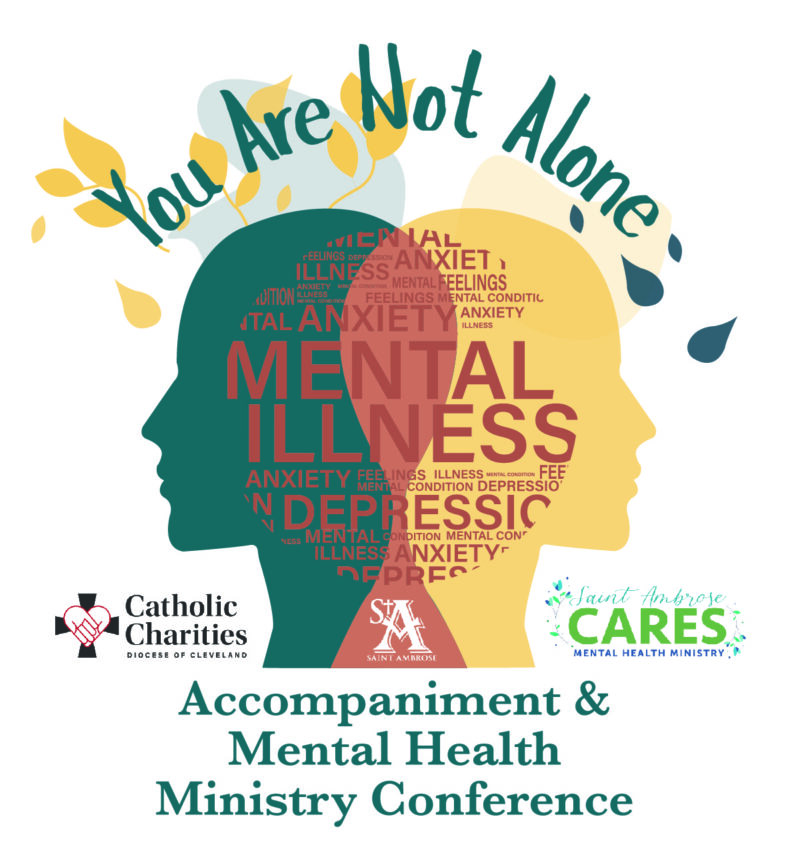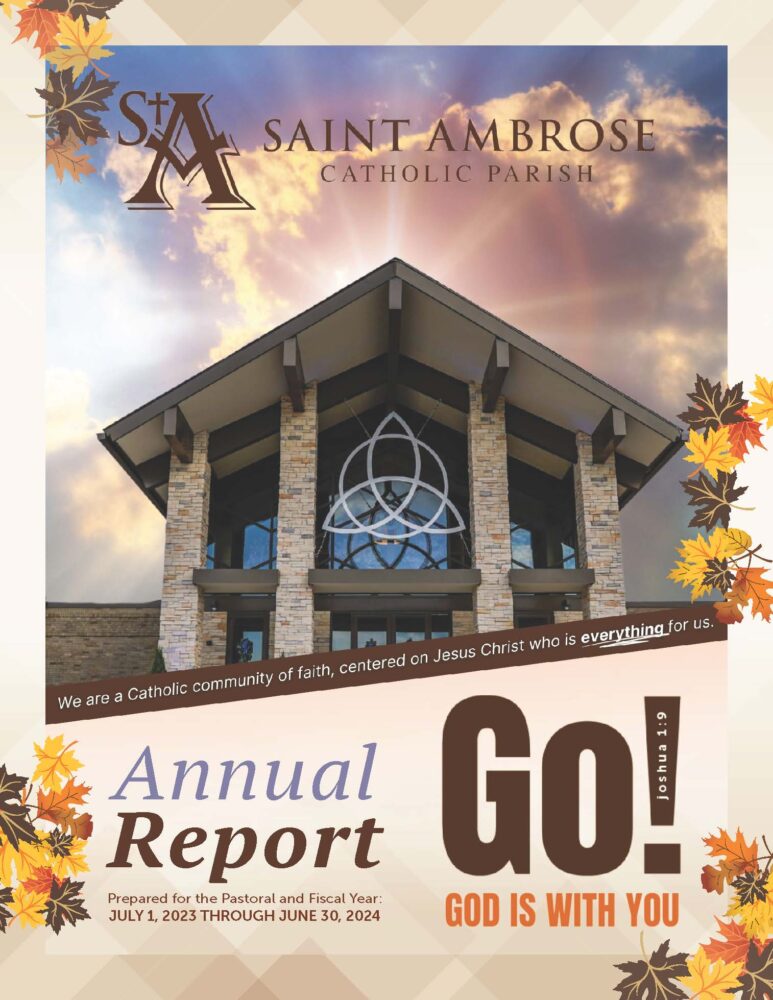Each person’s mental health is in constant flux and ebbs and flows on a daily basis, even in the best of times. One year after COVID-19 became a global pandemic, many adults report undesired changes to their weight, increased drinking and other negative behavior changes that may be related to an inability to cope with prolonged stress, demonstrating that the mental health effects of COVID-19 are as essential to address as are the physical health effects. This is even more true for the one in five who already have mental health conditions – or the one in two who are at risk of developing them.
In a new video series from St. Vincent Charity Medical Center, experts in Behavioral Health are covering a range of topics to help community members recognize the signs and symptoms of common mental health and addiction concerns.
People can and do experience an emotional or mental health crisis due to a wide range of situations. For some, it might be the end of a personal relationship. For others, it might be the loss of a job. Crisis, stress, depression and other issues affect people in different ways. Treatment can help.
Here, Michael J. Biscaro, Psy.D., ABPP, chief of behavioral health, discusses mental health crises and the Psychiatric Emergency Department at St. Vincent Charity Medical Center as the first topic in the series on behavioral health and the best approaches to care.
St. Vincent Charity Medical Center offers a Psychiatric Emergency Department, as well as broad range of inpatient and outpatient services to those in need of behavioral health treatment. To reach our centralized intake team, call 216-363-2580.
Original article posted on June 23, 2021: MENTAL HEALTH CRISIS: QUESTIONS & ANSWERS WITH DR. MICHAEL BISCARO
LEARN MORE IN THIS TRANSCRIPT OF A Q&A WITH DR. BISCARO:
QUESTION: What is a mental health crisis?
ANSWER: A mental health crisis is typically a culmination of a number of events – the tip of the iceberg. Things have built up over time and/or now have come to a head. When an individual is experiencing a crisis, their situation has really exceeded their ability to cope.
There are a lot of different crises in addition to mental health crises. We’ve heard about the opiate crisis. We’ve heard about financial crises. There are marital crises, and there are family crises. There are really all kinds of crises, but in particular, a mental health crisis is when somebody’s symptoms have exceeded their ability to manage in the given situation. In those instances, individuals may become suicidal, very agitated, very upset and unable to manage what is going on around them.
What people need to know about someone going through a mental health crisis, and this is really important, is this a person who is scared and needs help. And, there’s help out there. I’m certain we can help them at St. Vincent Charity Medical Center. We know that people with mental illness can and do recover. A crisis is one step in their journey, and it can be overcome.
QUESTION: How do we know when a situation has reached the level of a crisis?
ANSWER: The first sign is someone might verbalize that things are not going well, such as, “I’m not handling this right now. I’m out of control. Things are just too much for me.” They might be agitated, yelling, threatening, hallucinating and doing certain things other people might think are odd and/or atypical.
It could be much less obvious as well. They might not be sleeping anymore. They might become more isolated, be cutting themselves off from other people. Usually people realize something is different, something is off, but when it gets to the point of crisis, it’s an explosion of emotions. Things for this person have gotten really bad and we know we need to act now.
Mental health crises are avoidable in a number of different ways. There are a lot of warning signs. For example, a person might stop taking their medication. They might be sleeping less or not sleeping at all. Their appetite might change and they eat more or less or not at all. Patterns are starting to change, and if a person can recognize that in themselves, that’s great, but especially if their support people – their family, their friends, the people they trust and rely on – if they can notice those things, we can really alter the trajectory of what might become a crisis.
QUESTION: What are the first steps you can take if someone is in crisis?
ANSWER: If you’re witnessing somebody who’s in crisis, the first thing to do is be calm. You don’t want to match their level of intensity. That tends to not go very well. Remain calm and talk to this person as a human being. They’re scared. They’re upset, and they need somebody, typically in that instance, to just listen to them.
If someone feels they themselves are experiencing a crisis, they can try to reach out for help. Typically, we say take a minute, breathe, and reach out to somebody – whether it’s their doctor, a friend or a support person. This pause and check in can help alert people you need help and diffuse the situation.
If you’re a friend or somebody close to that individual and they’ve reached out to you, the important thing to do is listen and stay calm. Find out what’s going on with them. Where are they? What are some of their concerns? If they’re talking about harming themselves, if they’re talking about harming other people, that’s when we really need to do something now.
Ask – have they reached out to their resources? Individuals can also activate an emergency response by calling 911 and asking for an ambulance or police assistance. Oftentimes, police departments have crisis-intervention trained officers who are used to responding to those situations.
A lot of times people want to know how to help, and there might be times when it’s great to help, but there are also times when it is very important to get the professionals who are trained to help involved.
QUESTION: What care is available at St. Vincent Charity Medical Center to help people in crisis?
ANSWER: At St. Vincent Charity Medical Center, we have had a longstanding history of helping people in mental health crisis. We have a Psychiatric Emergency Department, which is one of only two in the state, and only handful in the country.
The Psychiatric Emergency Department is a place where people in crisis can get their needs met in real time. We’re committed to excellence and providing the compassionate care people deserve when they are most vulnerable.
It can be scary to encounter somebody who is in extreme crisis. They’re hearing voices, seeing things, responding to their symptoms and acting in ways that not everybody understands. The nice things about coming to a place like St. Vincent Charity Medical Center is we understand. We see the people we serve, we hear them and we are there for them.
One of the great things about our facility is that people have access to a number of different professionals – psychiatrists, social workers, chaplains, psychologists, nurses – an entire team approach to really make sure that we get individuals on the path to wellness. Furthermore, patients and families have access to many services they might need after that. We have inpatient adult psychiatry should they require additional hospitalization. We also have services for addiction treatment and outpatient mental health needs.
We’ve really transformed and expanded our continuum of care. That is one of the more unique things about St. Vincent now – people can show up to us in a state of crisis and we can follow them from that point to the point of recovery.
QUESTION: What is the difference between a typical medical Emergency Department and a Psychiatric Emergency Department?
ANSWER: At our Psychiatric Emergency Department, we treat crises in real time. Typically, when people are in crisis and they go to a medical emergency room, they have to wait a long time. They’re going to see a doctor or a professional who may or may not be trained in mental health. They might get restrained, have to wait a long time for medications to help calm them down, and might even been hospitalized when that is not necessary.
At our Psychiatric Emergency Department, we can get the right treatment onboard right away. We know that when people are coming in the door they are scared and need help. They may not really even know why they’re there. Our job is to really look at them as a person, to treat them from head to toe, and provide them with the compassionate care they need.
QUESTION: What are the prevention steps people can take to avoid reaching a crisis level?
ANSWER: We often work with individuals on relapse prevention plans or self-care plans that also engage their support people. Caregivers sit down with a family member or a friend and talk about what their loved one’s warning signs are, and what the individual would like their support person to do if they experience symptoms that usually result in becoming hospitalized. We encourage families to have those conversations with their loved ones so they know what to do, because it’s really hard to help if you don’t know what that person wants from you.
QUESTION: What is the best way to get connected to care at SVCMC?
ANSWER: St. Vincent has done a really nice job of improving access. We now have a centralized intake team that individuals and organizations can call 24 hours a day, seven days a week, year-round, and get access to inpatient and outpatient behavioral health services. All they need to do is call one number: 216-363-2580. They’ll reach someone who will help get them connected to the appropriate level of care.
Our centralized approach works well for connecting with the community, as well as referring hospitals and service providers. We’re accessible to them, so they can get clients to us at the right time and when they need care.
QUESTION: What additional resources are helpful in the event of a mental health crisis?
ANSWER: It’s important for anybody – a person with a mental health condition, a support person, a loved one – to know there are a lot of resources to help during a crisis.
There is a National Suicide Prevention Lifeline, 1-800-273-TALK, which provides 24/7, free and confidential support for people in distress, prevention and crisis resources for individuals or loved ones, and best practices for professionals.
There is also the HOPELINE created by Center for Suicide Awareness, which is a text-in free emotional support service providing help and support. Individuals can text 741741 from anywhere, anytime, about any type of struggle.
Among many local resources, there is a Mobile Crisis Team operated by Frontline Service that provides information and referrals, in-person assessments, crisis services and wellness checks. People can reach them by phone at 216-623-6888.
Certainly 911 is available in an instance of immediate threat – when a person is a danger of themselves, a danger to others and it’s an unsafe situation. Calling 911 is appropriate when there is a real sense of danger, imminent harm and that’s a policing situation.
There are many resources, and generally the first step is to talk to the person in need and find out what’s going on. Encourage them to call the helplines, to call the warm lines or to call the United Way 211 line, which is also connected to a lot of the crisis resources that are available both locally and nationally.
In this day and age, it’s important to have multiple ways to reach out to people. You can call somebody, you can text somebody, and you can even chat online with somebody.




